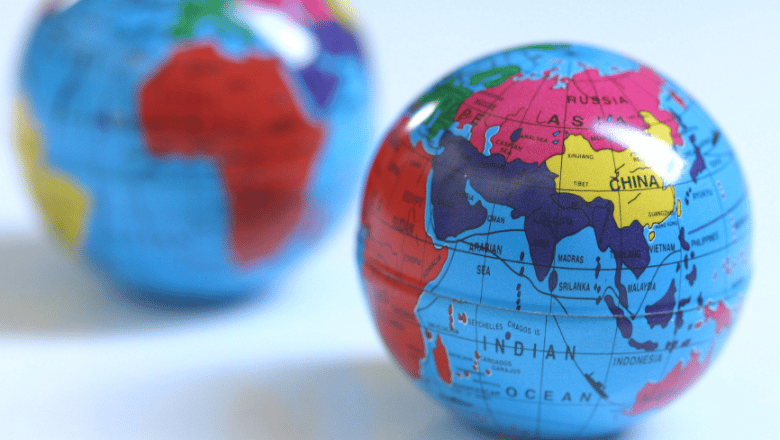Good evening!
Let’s face it—wars and market fluctuations can make investing feel like riding a roller coaster blindfolded! 🎢 But don’t worry, this is your ticket to understanding how global chaos like the Israel-Iran conflict and China’s massive stimulus package can impact your portfolio—without the headache!

Wars: A Short-Term Shake-Up, Long-Term Recovery
Yes, wars make markets wobble—just like when your favourite team misses a free-hit. But here’s the kicker: while the immediate reaction might feel like a gut punch, markets always find their balance in the long run. Take a look at some past precedents.
World War II (1939-1945): At the beginning of WWII, the Dow Jones fell almost 10% in 1939 as fear gripped investors. However, by the end of the war in 1945, the Dow had recovered to show an overall increase of 50%. The massive post-war recovery led to a booming global economy, thanks to technological advancements and infrastructure rebuilding efforts.
The Gulf War (1990-1991): The S&P 500 saw a 9% drop after Iraq's invasion of Kuwait. Oil prices surged due to fears of supply disruption, yet the war ended relatively quickly. By 1991, the market had rebounded, and within a year, it showed a gain of 25%, riding on a wave of global economic stabilization.
Iraq War (2003): The U.S. invasion of Iraq saw oil prices rise initially due to uncertainty. However, the S&P 500 increased by 29% within a year of the conflict's start, as markets adjusted to the new geopolitical realities and the economy rebounded.
The recent Russia-Ukraine War (2022-24): In February 2022, when the Russia-Ukraine war began, the S&P 500 dropped by about 5%. Indian markets also reacted, with the Nifty 50 falling over 3%. However, within weeks, global indices started recovering, proving once again that initial panic often gives way to a more measured response.
If the current tensions escalate further, the impact would be on energy prices, commodity markets, and related industries.
Sector-Specific Impact:
Not all sectors react to wars in the same way:
Energy: Iran is one of the world’s largest oil producers. Any sanctions or disruptions in its oil exports will likely lead to a surge in energy prices. Oil stocks typically benefit in such scenarios, but industries dependent on energy, such as transportation and manufacturing, may face increased costs.
Defence: As in any conflict, defence stocks often see a boost. Companies supplying military equipment, technology, and security solutions to Israel or neighbouring nations may witness increased demand.
Gold & Safe-Haven Assets: Historically, during geopolitical tensions, investors flock to gold and other safe-haven assets. Gold prices rose by over 20% during the Iraq War, as investors sought to shield themselves from the uncertainty of stock markets.
So, while the Israel-Iran conflict might cause some short-term oil price spikes and volatility, the long-term play is always resilience. Think of it like getting knocked down in a boxing match—it’s all about getting back up!
The "Sell India, Buy China" Trade Risk:
China’s stimulus is like injecting a superhero serum into the global economy!💥 But it has posed a temporary threat to India’s market valuation.
China announced a broad-based economic stimulus on September 24, 2024. The focus is on boosting domestic demand, infrastructure investments, and providing liquidity to key sectors. How does this impact you as an investor?
Emerging Market Reallocation: Till September, China was trading at PE multiple of 6 (demonstrating cheap valuation) whereas India has been trading at PE multiple of 22-23. With the possibility of improved economic performance in China, some foreign investors may shift from Indian equities to Chinese markets, creating a temporary dent in Indian stocks.
Commodities Boost: China’s infrastructure-focused stimulus could drive up demand for commodities like steel, copper, and cement, benefitting sectors tied to global supply chains.
The Reallocation to China (at least in the equity space) would be temporary as both country’s dynamics are now quite different:
Median age: India has a young population with a median age of 28 years, whereas China’s median age of population is 38 years.
Political risk: Though China is the second largest economy, political risk is significant. The ruling party may overnight declare some industries to be non-profit (turned the education sector into non-profit) or may impose a rule of wealth distribution (Jack Ma was not seen for almost a year).
China+1 Supply Chain: Most countries have realised that they may no longer rely on just one country to be their most important supply partner. Hence, they are looking to diversify slowly and gradually to other countries. This trend is permanent in nature.
What’s the Strategy?
Here’s how you can ride these waves like a pro:
Stay Focused on Long-Term Growth: As seen in past wars, geopolitical risks may cause short-term volatility, but the long-term trend remains upward. Diversification across sectors, especially commodities, energy, and technology, will help balance risks from conflicts like Israel-Iran while capitalizing on potential gains from China's stimulus.
Be Cautious of Overreaction: It’s essential not to panic-sell during times of geopolitical uncertainty. Market timing is notoriously difficult. Past events show that selling off during moments of fear can result in missed opportunities when markets recover.
Don’t sweat the short-term dips. Think of your portfolio like a great pizza dough—give it time, and it will rise! 🍕
Final Thoughts:
The world is wild right now but remember—wars come and go, but markets are marathon runners, not sprinters. China’s stimulus is the energy drink that might just keep the global economy moving faster. So stay cool, stick to your long-term game plan, and let’s crush these market swings together!
Best regards,
Tejas Lakhani
P.S: There are ample opportunities in the market to invest and generate good returns. Let’s connect.

